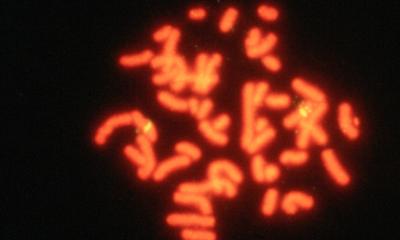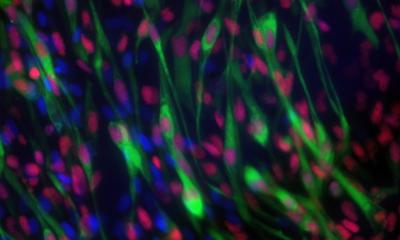Anything but standard
The desperate need for reference values in the paediatric lab
Although paediatric laboratory medicine and clinical chemistry is a well and long established scientific field, it is still a challenging one with its own special problems, as Dr Massimiliano Cantinotti, Paediatric Cardiologist Consultant at Fondazione G Monasterio, National Research Institute, Massa, Italy, well knows.

As a speaker at the forthcoming IFCC WorldLab and EuroMedLab international congress for clinical chemistry and laboratory medicine, here he presents an overview about organisational and scientific hurdles that need to be overcome in his field:
"There exist characteristic differences in the organisational structures of European paediatric labs. The main difference is that, in some countries, the paediatric lab is separated from the adult laboratory, whereas somewhere else they are joined together. In my opinion, it is essential to separate the two disciplines from each other in order to create dedicated teams. These teams should be multidisciplinary and combine the different professional skills of clinicians, biologists and dedicated technicians. Moreover, such specialised paediatric labs allow for the use of separate testing kits and to save economic resources.
Due to the scant samples in the paediatric lab (at least 0.25 ml EDTA blood) there is an ongoing need to optimise every single test. For example, every paediatrician would want micro-samples for children, especially in the neonatal age. Therefore, there is a growing demand to use blood analytic kits and systems that may potentiate the use of capillary samples. Capillary samples taken with a finger stitch may avoid multiple samples in children who are particularly stressful, especially for neonates and which may cause iatrogenic anaemia. Moreover, genetic examination and screening tests for metabolic disorders are relatively new and a growing field of work in the paediatric lab.
One of the major concerns that paediatric labs worldwide are occupied with is the establishment of age-related references values. These references values are defined as standard values in healthy probands. They do not mean a single standard value but that a certain range within all values is classified as normal. In contrast to adults, the humoral values in children heavily vary in age and gender, which is especially true in neonates within the first weeks of life. The problem is that it still lacks a valuation data basis in children containing a wide population of healthy subjects to reflect what is statistically normal in what stage of life.
Furthermore, these new references values would also be especially helpful for the application of new testing kits and metabolites, respectively the analysis of new specific markers.
Additionally, another issue is that references values are strongly method dependent. Which means that, on the one hand, different methods often have different reference ranges and, on the other, with many labour parameters it impossible to repeat an analysis of a probe truly and exactly. Therefore it is difficult to compare values of different labs with on another.
Nevertheless, I do believe that the establishment of references values is not only a crucial field for basic research, but would also be a crucial field of future activity for European collaboration projects, e.g. to create joint blood banks."
As an international expert and speaker at the IFCC WorldLab session ‘Current challenges in the paediatric laboratory’, Dr Cantinotti will discuss ‘Diagnostic accuracy of BNP in children with congenital heart disease’ on 19th May. The IFCC WorldLab meeting is held every three years; the 2011 congress will take place on 15-19 May, in Berlin, Germany.
Report by: Karoline Laarmann
28.02.2011











